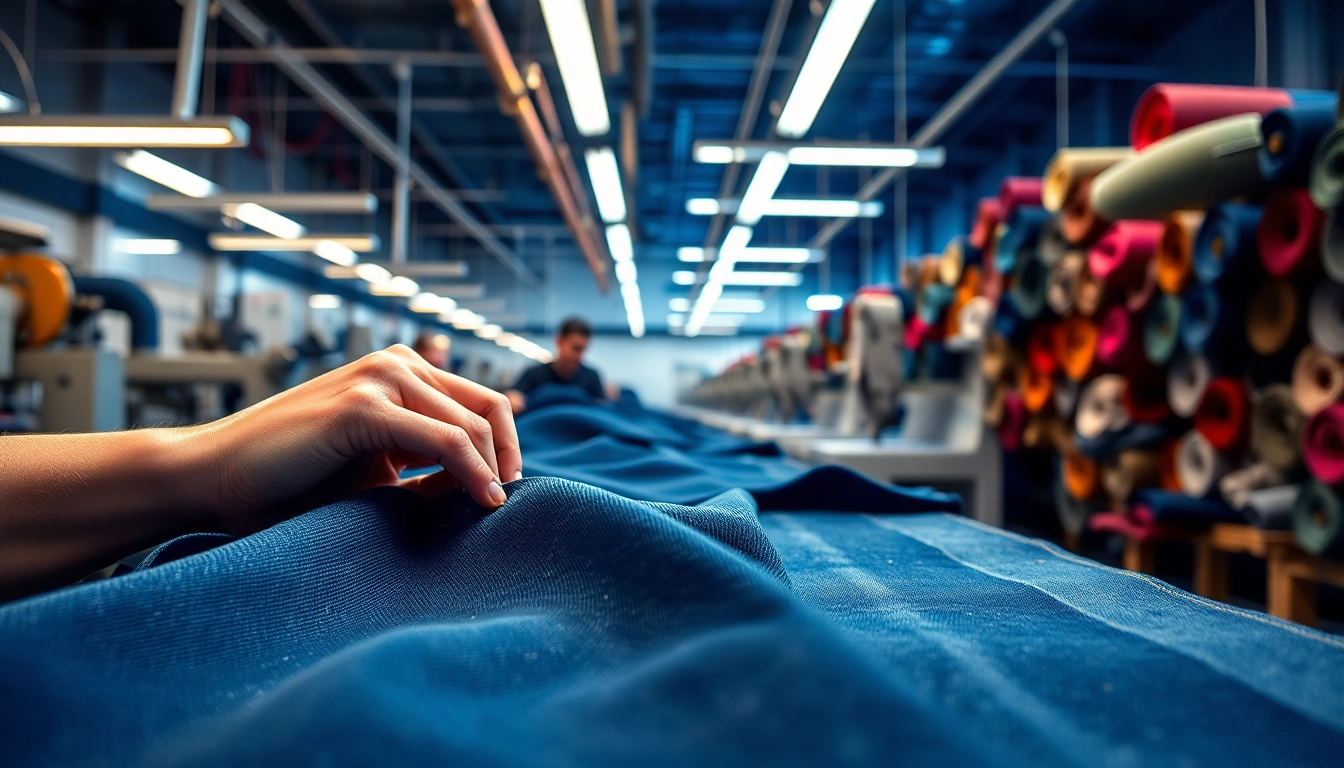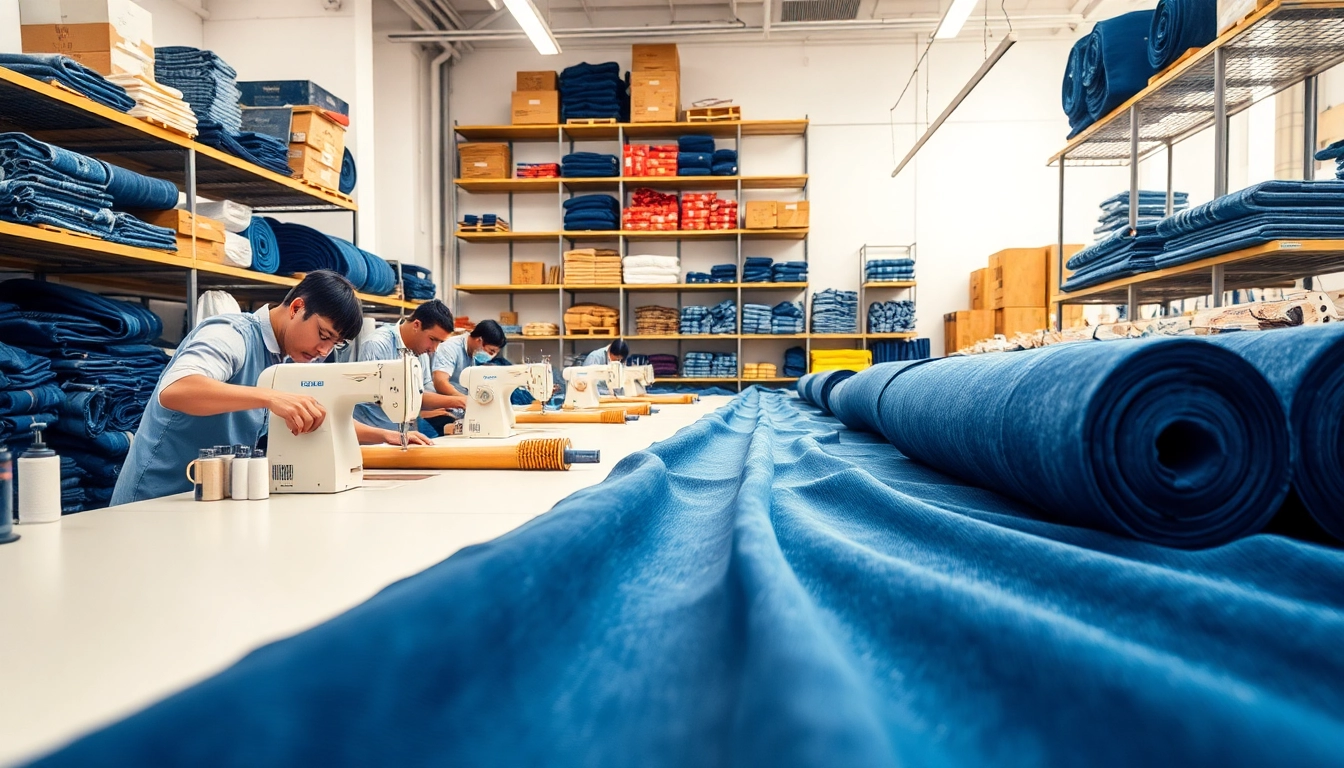Understanding the Role of Jeans Manufacturers
Jeans play an integral part in contemporary fashion, merging comfort and style, which has led to an explosion of brands and styles within the denim market. The backbone of the jeans industry lies within the jeans manufacturers, who are responsible for transforming fabric into wearable items. This article delves deep into the role of jeans manufacturers, examining their importance, the services they offer, and how to choose the right one for your brand.
What Are Jeans Manufacturers?
Jeans manufacturers are specialized companies that focus on the production of denim garments, primarily jeans. Their responsibilities span a wide range of activities, from sourcing raw materials to designing and producing finished products. Typically, these manufacturers cater to clothing brands, retailers, and wholesalers, providing them with options to create unique designs that resonate with their target market.
The manufacturing process involves several critical steps, including:
- Fabric Sourcing: The first step involves selecting the right denim fabric, including variations in weight, color, and stretch.
- Pattern Making: Manufacturers create patterns based on design specifications. This step includes deciding on the fit, style lines, and other unique features.
- Cutting and Sewing: Once the patterns are finalized, the fabric is cut into specific shapes and sewn together using specialized machinery.
- Finishing Techniques: This includes washing, distressing, and adding embellishments to give the jeans their final look.
The Importance of Quality in Denim Production
Quality in denim production is paramount; it directly influences consumers’ satisfaction and brand reputation. High-quality jeans not only last longer but also provide better comfort and fit. This necessitates rigorous quality control measures during the manufacturing process. Issues such as uneven stitching, poor fabric quality, or incorrect sizing lead to returns and lost sales, making it essential for manufacturers to uphold high standards.
Several factors contribute to quality in denim production, including:
- Raw Material Quality: The source of the denim fabric affects both durability and appearance. Premium fibers result in better quality outcomes.
- Manufacturing Techniques: Employing skilled labor and advanced technology ensures precise manufacturing processes.
- Attention to Detail: Quality control inspections at each stage of production help to identify and rectify potential issues before products reach consumers.
Key Services Offered by Jeans Manufacturers
Beyond simply producing jeans, many manufacturers offer an array of additional services that can significantly enhance a brand’s value proposition. Key services can include:
- Custom Design Services: Many manufacturers provide collaborative design processes, allowing brands to inject their unique styles into the denim garments.
- Sampling: Early sample production helps brands visualize designs before full-scale production begins.
- Fabric Development: Some manufacturers assist in creating custom fabrics, which can set a brand apart in a crowded marketplace.
- Private Label Services: Manufacturers often enable brands to sell products under their own labels, offering flexibility in branding and marketing.
How to Select the Right Jeans Manufacturers
Selecting the right jeans manufacturer is a crucial decision that can influence the success of your denim brand. The manufacturing partner you choose should align with your brand’s goals, quality standards, and pricing strategy. Below are key considerations in making this selection.
Identifying Your Brand’s Needs
Before searching for a manufacturer, it’s essential to define what your brand needs. Consider the following questions:
- What type of jeans do you want to produce (e.g., casual, high fashion, sustainable)?
- What is your target market, and how does this affect your production requirements?
- What volume of production do you anticipate (i.e., small batch versus mass production)?
Understanding your specific demands will help streamline your search for the right jeans manufacturers.
Evaluating Manufacturer Quality and Reliability
To ensure that your product meets your standards, evaluate potential manufacturers based on their historical performance and operational capabilities. Factors to consider include:
- Reputation: Research customer reviews and testimonials to gauge reliability and satisfaction levels.
- Certifications: Check for certifications that indicate compliance with industry standards.
- Production Capacity: Ensure the manufacturer can meet your anticipated production volumes consistently.
Conducting Factory Visits and Assessments
Whenever possible, visit the manufacturing facility to observe operations firsthand. This allows you to assess:
- The working conditions, which reflect the manufacturer’s commitment to ethical practices.
- The level of technology used, which can affect production efficiency and product quality.
- The staff’s expertise, which correlates with the quality of the finished product.
In-person visits can also foster relationships that are valuable for long-term partnerships.
Key Trends in Denim Manufacturing
The denim manufacturing industry is evolving rapidly, shaped by consumer preferences and environmental concerns. Here are some key trends impacting the sector.
Sustainable Practices in Jeans Manufacturing
Environmental awareness is at an all-time high, prompting brands to seek sustainable manufacturing practices. Manufacturers are adopting eco-friendly methods, such as:
- Waterless Dyeing Technologies: These methods significantly reduce water consumption during production.
- Eco-Friendly Materials: Increasing use of organic and recycled fibers helps minimize the environmental impact of denim production.
- Sustainability Certifications: Manufacturers are aligning with certifications like Global Organic Textile Standard (GOTS) to assure consumers of their green practices.
Investing in sustainable practices not only satisfies environmentally-conscious consumers but can also enhance a brand’s image.
Innovations in Denim Fabrics
Innovation in fabric development is continually evolving, bringing exciting new options to the market. Manufacturers are exploring:
- Stretch Technology: Advanced technologies enable denim to stretch and retain its shape, enhancing comfort and fit.
- Smart Textiles: Emerging fabrics that respond to environmental changes, improving functionality and performance.
- Vintage Wash Techniques: Manufacturers have developed specialized processes to achieve vintage-style finishes without compromising fabric quality.
These innovations create unique selling points for denim brands looking to differentiate from competitors.
Market Demands and Consumer Preferences
Staying attuned to market demands is critical for any brand. Current trends include:
- Customization: Consumers increasingly desire personalized products, pushing brands to implement custom design options.
- Gender-Neutral Fashion: There is a growing demand for unisex styles that appeal to a more diverse audience.
- Inclusivity in Sizing: Brands are moving towards size inclusivity, recognizing the importance of catering to a wider demographic.
Adapting to these consumer preferences is vital for maintaining relevance in today’s fast-paced marketplace.
Common Challenges Faced with Jeans Manufacturers
Quality Control Issues
Despite rigorous quality control measures, issues can arise. Common quality problems may include:
- Inconsistent fabric quality leading to variances between batches.
- Design inaccuracies resulting in altered fit and appearance.
To address these problems, partners should implement stringent quality checks at every stage of production, and consider third-party inspections if necessary.
Communication Barriers with Manufacturers
Miscommunication can hinder the development process and affect the final product. Challenges may arise from:
- Differences in language or cultural nuances.
- Lack of clear specification and directives throughout the design and production processes.
Utilizing skilled intermediaries fluent in the local language or developing clear, detailed design briefs can help mitigate these barriers.
Managing Production Timelines
Tight deadlines can strain relationships between brands and manufacturers. Delays can occur due to:
- Raw material shortages that impact the manufacturing timeline.
- Unforeseen production issues that lead to bottlenecks.
Establishing realistic timelines and maintaining constant communication can prove beneficial in managing expectations and ensuring timely deliveries.
Leveraging Relationships with Jeans Manufacturers
To maximize the potential of your partnership with jeans manufacturers, consider leveraging relationships for long-term success.
Building Long-term Partnerships
Long-term partnerships with manufacturers create an ecosystem of trust and mutual benefit. To foster strong relations:
- Prioritize transparency in communications, including clear expectations, feedback, and needs.
- Invest in joint development efforts to innovate and adapt to changing market demands.
- Consider performance reviews to ensure that both parties continue to meet agreed-upon standards.
Building a collaborative environment can enhance operational efficiency and lead to better product outcomes.
Negotiating Best Prices and Terms
Negotiation is an essential aspect of any business arrangement. To optimize contracts and terms:
- Research market rates beforehand to understand the price landscape.
- Leverage volume purchasing to negotiate more favorable terms.
- Be open to discussing flexible payment options that can benefit both parties.
Establishing a fair agreement will bolster durability in your vendor relationships.
Staying Informed on Industry Changes
The denim manufacturing landscape is ever-evolving. Staying ahead requires:
- Regularly exploring new technologies and practices in the industry.
- Attending industry events and forums to network and glean insights.
- Monitoring shifts in consumer preferences and adapting strategies accordingly.
Fostering continuous education and adaptation will keep your brand relevant and competitive in the marketplace.
Conclusion
In conclusion, navigating the complexities of the jeans manufacturing landscape requires a robust understanding of the production process, market dynamics, and partnership strategies. By prioritizing quality, staying informed of industry trends, and establishing strong relationships, brands can effectively leverage jeans manufacturers to create standout denim products that resonate with consumers. With the right approach, your denim line can thrive in an increasingly competitive environment.



